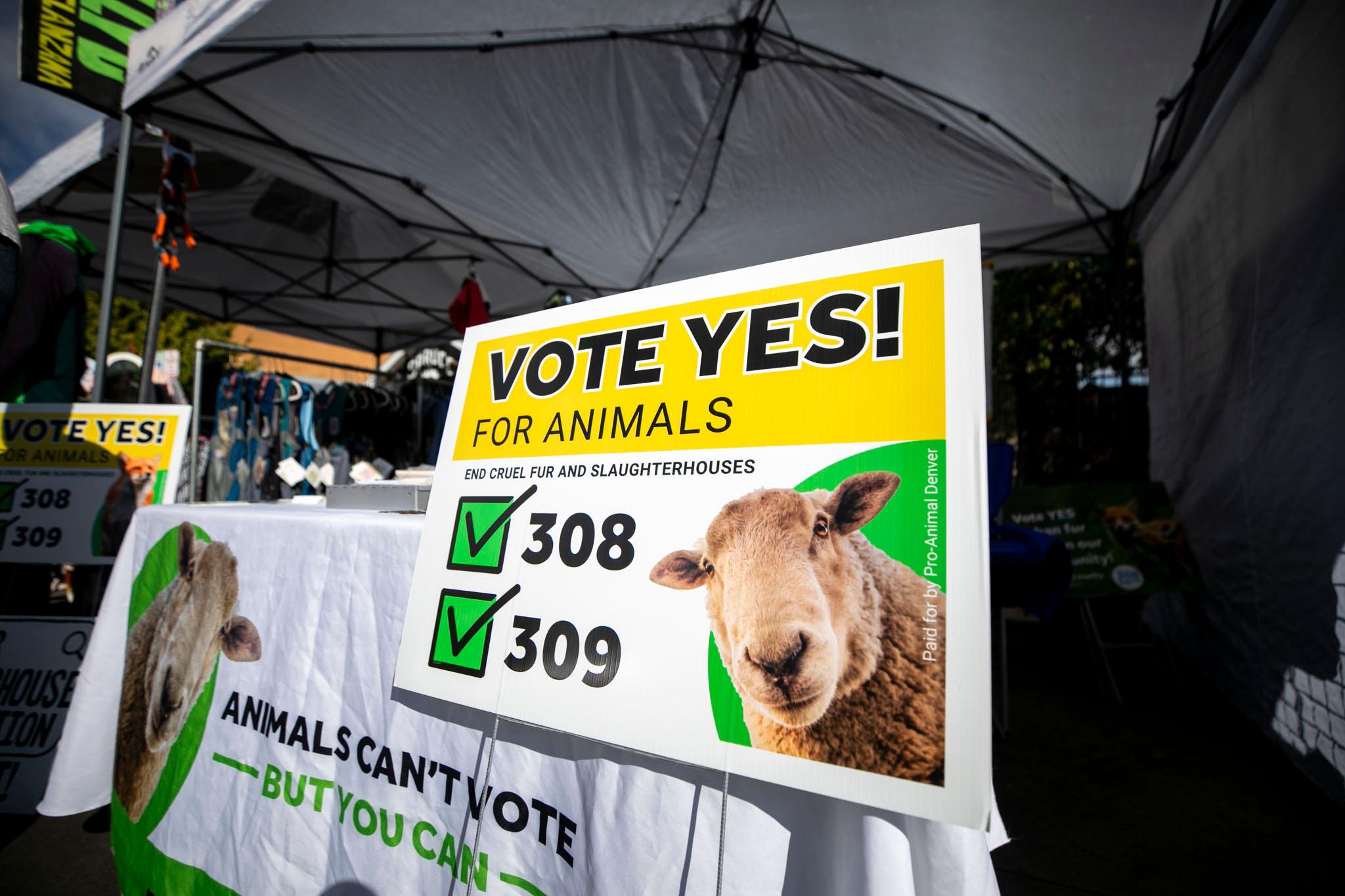Updated at 10:13 p.m. on Tuesday, Nov. 5, 2024
Fur will stay in Denver.
An effort to ban the sale of fur in Denver was failing as votes were counted on Election Day, and opponents of the measure declared victory after 8 p.m. and proponents of the ban conceded just after 9:30 p.m.
As of 9 p.m., only about 42 percent of Denver voters were in support of Initiated Ordinance 308, which would strictly limit the sale of real fur products.
"Thank you to the Denver voters tonight for seeing through the mirage that was trying to be presented to them as they attack our way of life here in Colorado," said Paul Andrews, president and CEO of the National Western Stock Show.
It was one of two measures that asked Denver voters to protect animal rights by putting new limits on businesses. Another measure, Initiated Ordinance 309, would ban the city’s only slaughterhouse. The slaughterhouse ban was losing by an even larger margin in the early results.
Roughly half of the city's votes may have been counted at this point.
Together, the measures asked voters to weigh moral arguments about animal welfare against concerns about Denver’s “cow town” traditions and the local economy.
Ballot Measure 308 would have outlawed most uses of fur, from mink coats to cowboy hats made of beavers. New furs could not be sold, distributed or traded in the city’s borders. Animals could not be slaughtered for fur. And fur could also not be sold or traded online.
First-time voter McKenna Rivas, 21, said she’s not keen on killing anything. But she had concerns about the people who make their living purchasing and selling fur — and in particular she worried about how it would affect indigenous people.
“I felt a little torn on that one,” she said.
Ultimately, she opposed the ban.
Details of the proposed Denver fur ban:
If it passed, the measure would have banned fur sales generally in Denver. It would have made a few exceptions for used fur products sold at stores whose main purpose is not to trade in fur.
The measure would have also protected Native American cultural, spiritual and tribal uses of fur. Still, sales of fur at cultural gatherings would have not be allowed.
Stores including Overland Sheepskin, A. Tsagas Furs and Leathers, Jonval Leathers and Dan Sharp Luxury Outerwear would have been affected by the ban.
And while fur is taboo in parts of the fashion world, cowboy hat manufacturers were concerned this measure would upend their tradition.
The measure would not have banned leather or wool.
Nearly $1 million was spent on the election fight.
Pro-Animal Future and other animal rights advocates widely back the measure. They have raised just more than $300,000 to campaign for the fur ban and slaughterhouse ban.
“This measure is an important step towards ending the cruel, unnecessary, and outdated practice of killing animals solely to wear their fur,” proponents argued in the city’s voter guide. “On fur factory farms, wild animals like foxes, mink, and rabbits spend their entire lives in tiny wire cages barely larger than their bodies. To preserve the ‘product,’ they are either bludgeoned to death, painfully gassed, or anally electrocuted.”
Opponents, united under the campaign Hands Off My Hat, include the National Western Stock Show, Visit Denver and the Colorado Trappers and Predator Hunters Association. They had raised more than $730,000 for the effort as of Nov. 4.
They argue the measure would be bad for local businesses who sell fur and for Native American vendors who sell products at cultural gatherings.
“Events like the Denver March Powwow are not just gatherings; they are vital expressions of our heritage and identity,” wrote Ernest House, Jr., a Ute tribal member and the former executive director of the Colorado Commission of Indian Affairs, in a statement. “Limiting our ability to share and sell our traditional crafts and goods would be a significant loss for both our communities and the broader public that values and supports them."
The National Western Stock Show is an annual event at the heart of old Denver culture. Hats sold at the event are made from pelts that would be prohibited. The rules would prevent many vendors from being able to sell their goods at the event.
“The Denver Fur Ban would mean that felt hats and other fur goods could no longer be sold at the Stock Show,” the opposition campaign argued. “Cowboys and cowgirls young and old adorn cowboy hats, a truly Western symbol, for this annual event.”
While proponents of the ban have conceded defeat on this measure, they view the overall campaign as part of a multi-year attack on animal agriculture.
"Traditional animal advocacy asks people to make individual changes," says Natalie Fulton, Pro-Animal Future spokesperson. "We've shown that we can think bigger – we can challenge these industries at a systemic level. We've built a movement that will continue growing stronger."
While fur may still be legally sold in Denver, the fight at the polls over the industry's future will continue in this city and nationwide.
This is a developing story and may be updated.











